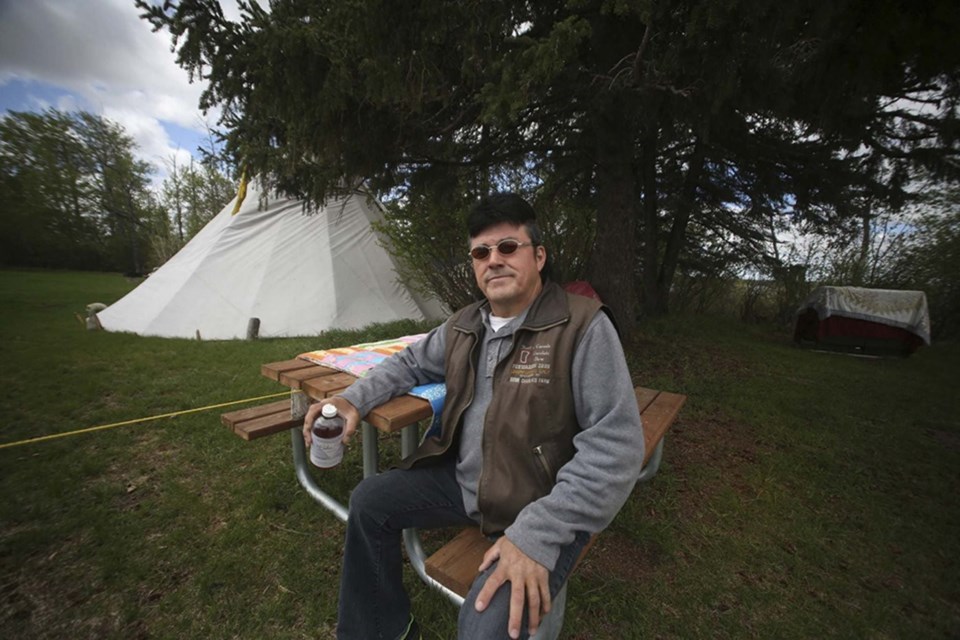Parks Canada will not be complying with requests to remove Wesley Bone from Riding Mountain National Park.
The ask comes from from 26 frustrated Lake Audy area residents.
Parks Canada stated by email late Wednesday afternoon that it is dedicated to fulfilling its mandate to conserve and share national heritage places, like Riding Mountain National Park, and that the park provided a wide array of experiences and services to thousands of visitors at Riding Mountain during the summer.
According to the park website, overnight camping at Lake Audy Campground in Riding Mountain National Park remains closed, and Parks Canada continues to ask visitors to respect Bone’s space and privacy as it works toward a positive resolution to reopen the site.
The group camping area in the south end of the campground along with two kitchen shelters and a fish cleaning station are also inaccessible to visitors.
"The agency is also committed to working carefully and collaboratively through dialogue to find constructive and peaceful outcomes to complex situations such as the matter of Mr. Bone’s assertions and presence at the Lake Audy Campground," Parks Canada stated.
"It is working closely with partners, including Indigenous organizations and communities, as well as with local stakeholders, and is considering all options to serve the public interest in this matter."
Also on its website, Parks Canada states that reconciliation and building trust with Indigenous partners is a priority. The Anishinabe of Riding Mountain hold deep cultural connections to Lake Audy. Archeological evidence reveals that the site has been occupied and used by Indigenous groups for at least 4,000 years.
Darla Krupa, a spokesperson for the residents, told The Brandon Sun last Friday the group wants Bone out of the park for safety reasons. The residents also believe his presence and barricade make people feel unwelcome.
The residents have held several meetings, one of which Mazier attended. He has written to Jonathan Wilkinson, the minister responsible for Parks Canada, pointing out that Bone, with his "unlawful occupation," is flouting the law. He asked for an urgent resolution the matter — in two separate letters.
Meanwhile, Bone said that Les Campbell, the park’s Indigenous affairs manager, visits him regularly. When asked what the two discuss, Parks Canada stated that careful and thoughtful dialogue is the best approach for responding to complex situations such as this one.
"Parks Canada has engaged in respectful discussions with Mr. Bone focused on interests and on finding a constructive resolution to this matter," stated the agency.
Bone told The Sun he and park staff discussed putting a lock on the fence he erected, and that both parties would have keys. This is due to acts of vandalism and aggression against Bone.
Parks Canada stated gates are used throughout the national park to manage access to certain areas.
"In this case, Mr. Bone has expressed that he erected a gate because he does not feel safe due to threats and acts of vandalism committed at Lake Audy. This is an area of ongoing discussion with Mr. Bone," the agency stated.
Bone told The Sun Wednesday that he has been advised by park staff that if the residents do seek him out at the park, which they indicated they might, he should "get to safety and call the RCMP."
The Sun asked what the park’s long-term plan is, as Bone has repeatedly stated he will not vacate the area.
"A thoughtful and measured approach is the best way for all parties to come to a positive outcome that will enable camping and cultural use to co-exist at Lake Audy," the agency replied. "Parks Canada team members are monitoring the situation and are also engaging with visitors and the individuals involved in the occupation to provide information and maintain constructive relationships. The agency will continue to communicate with the group of concerned residents around Lake Audy."
Asked if park staff had safety concerns similar to those expressed by residents and local politicians, Parks Canada said "careful and thoughtful dialogue is the best way to come to a constructive resolution of this matter that will enable camping and cultural use to co-exist at Lake Audy."
"Parks Canada is committed to visitor safety and agency staff are monitoring the situation closely and are engaging with visitors and the individuals involved to provide information and maintain constructive relationships."
When questioned about how Parks Canada would address residents’ concerns, the agency stated that it firmly believes an approach based on thoughtful and constructive dialogue will enable all parties, including the Coalition of First Nations, to come to a constructive resolution of this matter.
"At this time, Parks Canada will continue to communicate with the group of concerned residents around Lake Audy."
The Sun could not reach Krupa for comment.



